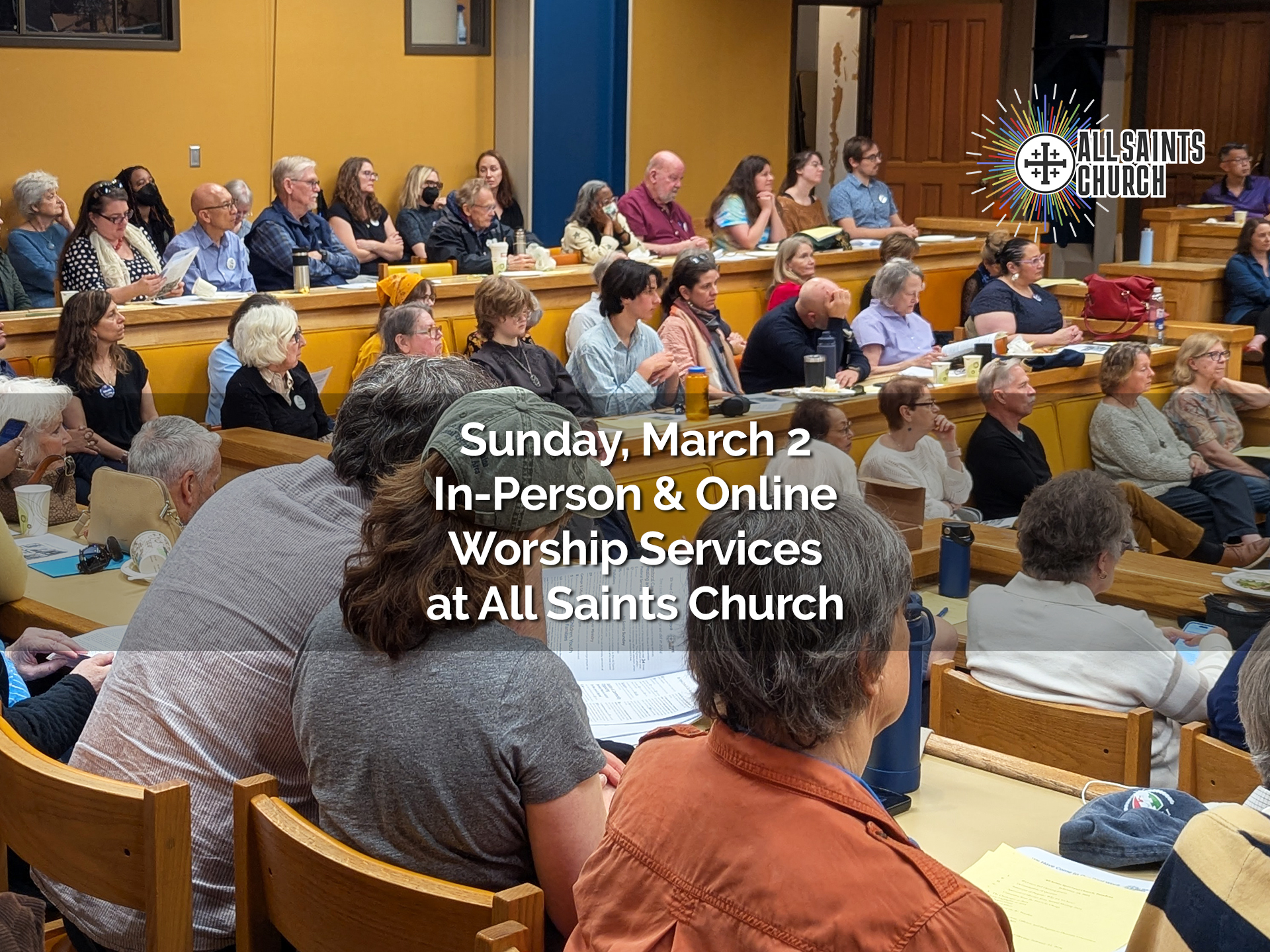The Gospel isn’t meant to be gulped down on Sunday morning, but gnawed on through the week so it really becomes a part of us. You’ve got to work at it, like a dog with a good bone! Here’s the Gospel for this coming Sunday — Trinity Sunday — with food for thought on healing as sacrament. Gnaw away!
Second Sunday after Pentecost – Mark 2:23-3:6
One sabbath Jesus and his disciples were going through the grainfields; and as they made their way his disciples began to pluck heads of grain. The Pharisees said to him, “Look, why are they doing what is not lawful on the sabbath?” And he said to them, “Have you never read what David did when he and his companions were hungry and in need of food? He entered the house of God, when Abiathar was high priest, and ate the bread of the Presence, which it is not lawful for any but the priests to eat, and he gave some to his companions.” Then he said to them, “The sabbath was made for humankind, and not humankind for the sabbath; so the Chosen One is lord even of the sabbath.”
Again he entered the synagogue, and a man was there who had a withered hand. They watched him to see whether he would cure him on the sabbath, so that they might accuse him. And he said to the man who had the withered hand, “Come forward.” Then he said to them, “Is it lawful to do good or to do harm on the sabbath, to save life or to kill?” But they were silent. He looked around at them with anger; he was grieved at their hardness of heart and said to the man, “Stretch out your hand.” He stretched it out, and his hand was restored. The Pharisees went out and immediately conspired with the Herodians against him, how to destroy him.
The Backstory – What’s Going On Here?
At long last, we return to the Gospel of Mark … the primary Gospel of Year B! We pick up as Jesus begins his public ministry – and it’s interesting to see how that plays out. As soon as Jesus calls disciples, Jesus concentrates on one thing … healing. That healing takes different forms. Sometimes it takes the form of casting out unclean spirits. Sometimes it takes the form of healing illness and disease. Sometimes it takes the form of healing a seemingly incurable infirmity, like paralysis. Even when he is not performing a healing miracle and instead is doing something provocative like having dinner with a tax collector, Jesus talks about it in healing terms: “Those who are well have no need of a physician, but those who are sick.”
It is clear that Mark’s Jesus is all about bringing healing wherever it is needed. In our bodies. In our minds. In our spirits. In our relationships. It is also clear that this ability to heal gives him great authority … and makes him a threat to the religious authorities.
A few things to chew on:
*The Pharisees have noticed that Jesus speaks “as one with authority” … and so they are trying to assert their authority over Jesus as teachers and arbiters of the Law. Specifically, they are challenging him on his observance of a core principle – keeping the Sabbath. But Jesus takes their challenge and uses it to double down on his own authority. He doesn’t just say what we most often remember as his response (“Sabbath was made for humankind, not humankind for the Sabbath”) … he uses the scripture to claim the authority of King David for himself. In one response, Jesus is telling the religious authorities that he is assuming the authority for himself that they would claim to have … the authority to lead the people of Israel.
*In the next portion of the Gospel (3:1-6), Jesus doubles down again. The Pharisees had tried to shut him up, and he not only parried the blow, he goes on the offensive – challenging them with the very thing that has characterized his ministry and his power: the ability to heal. The Pharisees’ response is silence and powerlessness. But instead of joining him and recognizing his authority is from God, they reveal themselves to care more about their own power than the living out of the will of God by conspiring how to destroy Jesus.
Try This:
When the Pharisees and Jesus disagreed on an important point of belief – whether it was lawful to heal on the Sabbath, it’s important to notice the two parts of Jesus’ response. First, Mark’s Gospel says he was angry and grieved at the Pharisees and their hardness of heart. When we see injustice. When we see lack of concern for those in need … those feelings of anger and grief are natural and even holy.
But the second piece is just as important. Jesus didn’t lash out against those he was angry with. Instead he reached out in love and healing to those in need. Instead of creating more wounds, Jesus responded in the love that was lacking in the Pharisees.
There are so many reasons for us to be rightly angry and grieved today about how people are treated … and it is so easy for us to be consumed by our anger and act out of it. This week, when you find yourself angry and grieved, first let yourself feel that … and then commit yourself to at least one small act of love that can be your response.
A Hospital Church
Last week in this space, I quoted our sister Becca Stevens, who says there is truly just one sacrament of the church and it is healing.
Jesus would seem to agree.
In this Gospel reading – and truly in the entire Gospel of Mark up to this point – Jesus is concerned with one thing and that is healing.
Jesus isn’t concerned with being right.
Jesus isn’t concerned with vanquishing his enemies.
Jesus isn’t concerned with getting huge numbers of disciples or building a powerful movement.
Jesus isn’t concerned with defending himself against others.
Jesus is concerned with healing. With people being made whole.
I was talking to someone last week who said that she heard once that All Saints was “a hospital church.” I love that thought.
I love the thought that All Saints is a community where when we enter into it, we know that we are wounded and that we are actively seeking to be made whole.
If we are a hospital church, that means that we know we need healing – and we know that God’s presence in the gathered community is where it happens.
If we are a hospital church, that means that we are open to being challenged and changed.
If we are a hospital church, that means we are looking for how through God’s power of love flowing through us we can love and heal one another.
If we are a hospital church, that means that, like Jesus, we are about naming that which is broken, that which divides and separates us, that which is unhealthy … naming it and using the power of love to drive it away.
Jesus’ authority came from his ability to heal. From his willingness to be with those who needed healing and to not let any barrier – particularly the laws of those who would claim to be religious – stand in his way.
Where has All Saints Church been a healing force in your life?
Where is healing still needed in your life?
Where is healing still needed in our All Saints community?
Where is healing still needed in our world?
How can we, when we are tempted to care about being right, about vanquishing our enemies, about building huge numbers or defending ourselves against attack … how can we instead ask ourselves:
What does love look like?
What does healing look like?
How is Jesus working in our midst to take all that is broken and make it whole?
. . . . . . . . . . . . . . . . . . . . . .
Check out the rest of Sunday’s readings
The Lectionary Page has all of the readings for this Sunday and every
Sunday – just click here.
Collect for Sunday
Pray this throughout the week as you gnaw on this Gospel.
O God, your never-failing providence sets in order all things both in heaven and earth: Put away from us, we entreat you, all hurtful things, and give us those things which are profitable for us; through Jesus Christ our Lord, who lives and reigns with you and the Holy Spirit, one God, for ever and ever. Amen.
Want to read more?
“The Text This Week” is an excellent online resource for anyone who
wants to dive more deeply into the scriptures for the week.
. . . . . . . . . . . . . . . . . . . . .



